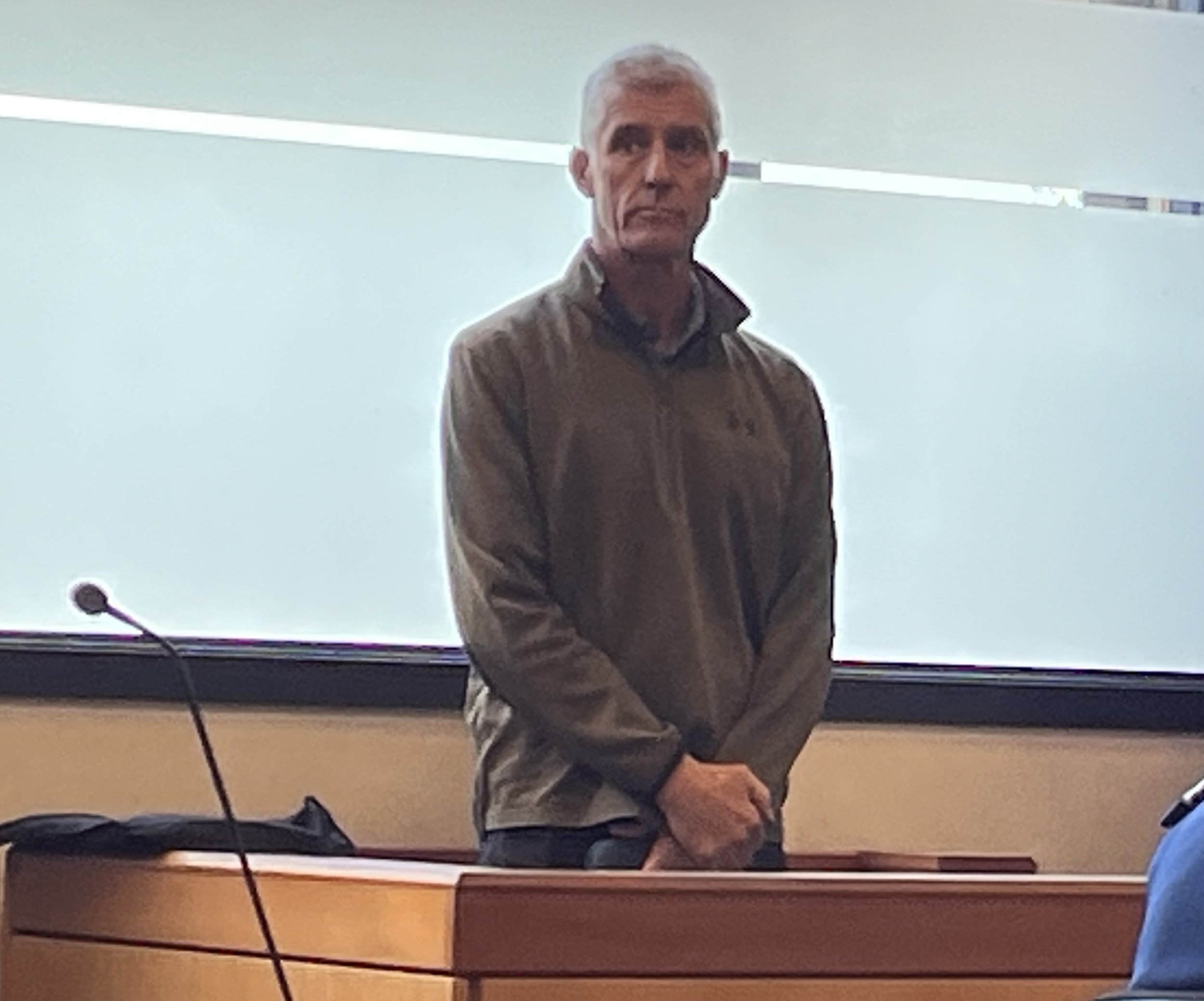Former Hospice Shop manager sentenced
Mark Wisniewski appears in the dock at Taupō District Court. Photo: Chris Marshall
Former retail operations manager at Lake Taupō Hospice Trust, Mark Wisniewski, 64, has been sentenced to 16 months in prison for his theft of just over $62,000 from the organisation between 2016 and 2024.
By Chris Marshall
While his lawyer Mark Kirkeby argued for home detention if certain sentencing discounts were applied, Judge Jo Wickliffe ultimately did not accept Wisniewski qualified for the full range his counsel advanced.
She questioned whether Wisniewski’s stated remorse was genuine and said the harm done to the image of Lake Taupō Hospice Trust was significant.
This needed to be considered in Wisniewski’s sentence, she said, “as is the need for me to promote in you your sense of responsibility and an acknowledgement of the harm, because I'm not sure that you understand that.”
Finally Judge Wickliffe said in considering the important purpose in any sentencing of denouncing criminal conduct: “Your conduct… was not a mistake. It was abhorrent. It was…reprehensible. It was sustained offending over a lengthy period of time, and at no time did you stop and think I should cease offending.
“This… speaks to your sense of entitlement, that you were not being remunerated sufficiently and that you were entitled in some way to balance that out. In my view, anything less than imprisonment would not be sufficient to denounce your conduct.”
In earlier summarising the contents of a pre-sentence report from community corrections, Judge Wickliffe told the Taupō District Court that Wisniewski had advised the probation officer his role was to: ‘grow the business, more sales and make a bigger net profit.’
“You said that you grew the net profit of the business by some $370%, but this was unable to be verified,” the judge said.
“You said you began taking the cash because you felt you were not ‘getting a fair shake.’
“You said you took the money because you weren't being reimbursed for taking your own vehicle down to Tūrangi on a weekly basis to manage the store.”
The report also stated that Wisniewski said he felt aggrieved that the organisation’s financial administrator put roadblocks in the way of spending, which would grow the business.
The pre-sentence report also revealed that Wisniewski said he used the cash on incidentals throughout the week, including petrol and lunches, and maybe a beer after work but did not bank it or buy anything expensive.
In the pre-sentence report, Judge Wickliffe said the writer noted that “while you expressed remorse about your offending, this appeared to be focussed around the consequences that you found yourself in rather than the actual offending.
“The report writer said you focussed on the justification, rather than the impact the loss of these proceeds had to the potential charity recipients.”
One of the mitigating factors advanced for the reduction in Wisniewski’s sentence was that in April he had paid back $62,600 in reparation to the insurance company that had forwarded that amount to Hospice for its loss.
Mr Kirkeby said that the reparation was paid out of money Wisniewski had invested in a local racetrack and a business he sold which had been put aside as a nest egg and for an upgrade of the Wisniewski’s home.
However, in considering this Judge Wickliffe said she didn't accept that it caused Wisniewski any great hardship.
“The fact that you were able to repay it straight away tells me that you didn't need this money. It wasn't a case where you desperately needed these funds… you can only have taken it for the reasons that you said in your pre-sentence report, which is because you felt entitled to it.”
Under section 240 of the Crimes Act 1961 the offence of causing loss by deception carries a maximum prison sentence not exceeding seven years.

